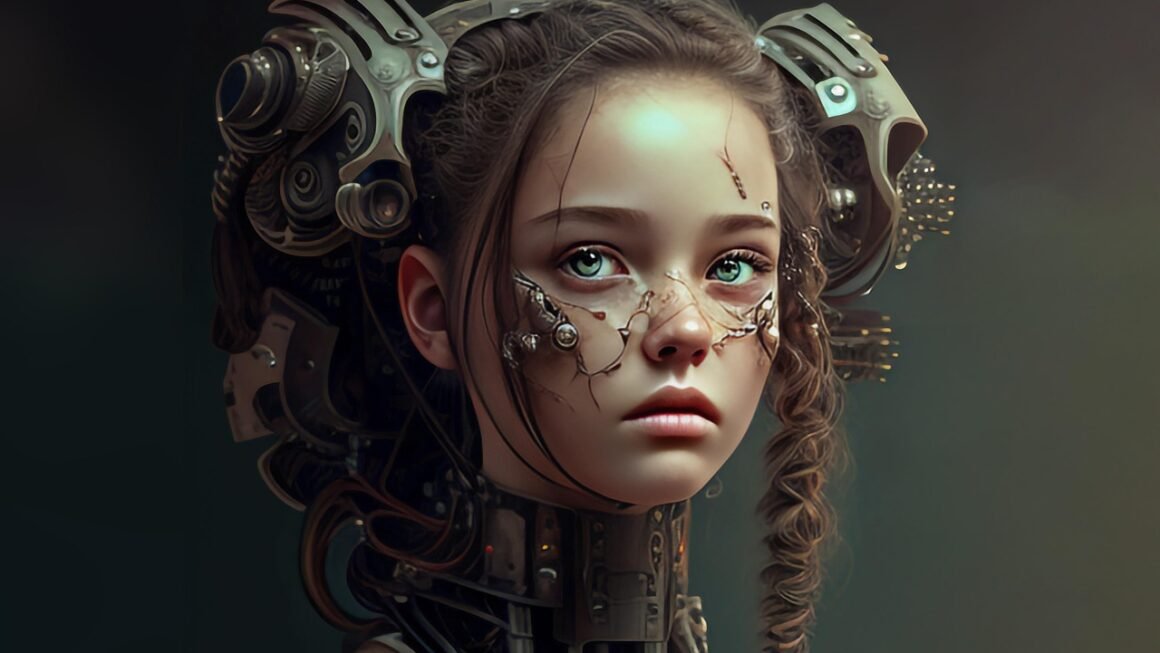Artificial intelligence (AI) is revolutionizing the gaming industry, moving beyond simple scripted behaviors to create dynamic, immersive, and personalized experiences for players. From smarter non-player characters (NPCs) to procedurally generated worlds and enhanced game testing, AI is transforming how games are developed, played, and enjoyed. This article delves into the multifaceted role of AI in gaming, exploring its applications, benefits, and future implications.
Smarter NPCs and Enhanced Gameplay
AI’s ability to create more realistic and engaging NPCs is one of its most significant contributions to gaming. No longer are players restricted to interacting with predictable, repetitive characters. AI-powered NPCs can exhibit more complex behaviors, learn from player interactions, and adapt their strategies in real-time, leading to a more challenging and rewarding gaming experience.
Improved NPC Behavior
- Realistic Reactions: AI allows NPCs to react more realistically to player actions, creating a sense of immersion and believability. For example, in games like The Last of Us, enemy AI uses sophisticated pathfinding and tactical awareness to flank and surround players, making encounters feel dynamic and unpredictable.
- Learning and Adaptation: Some AI systems enable NPCs to learn from their experiences and adapt their strategies over time. This can make gameplay more challenging as NPCs become more adept at countering player tactics.
- Dynamic Dialogue: AI-powered dialogue systems can generate unique and contextually relevant conversations with NPCs, enhancing the role-playing experience. This involves natural language processing (NLP) to understand player input and generate appropriate responses.
- Example: Consider an RPG where NPCs remember player actions and adjust their attitudes and dialogue accordingly. Saving a village from bandits might earn the player the respect and gratitude of the villagers, influencing their future interactions.
Dynamic Difficulty Adjustment
AI can be used to dynamically adjust the game’s difficulty based on the player’s skill level, providing a personalized and challenging experience. This ensures that the game is neither too easy nor too difficult, keeping players engaged and motivated.
- Real-time Analysis: AI algorithms analyze player performance metrics such as accuracy, reaction time, and decision-making speed.
- Difficulty Scaling: Based on this analysis, the AI adjusts parameters like enemy health, damage output, and spawn rate to maintain an appropriate level of challenge.
- Personalized Experience: This adaptive difficulty system ensures that players of all skill levels can enjoy the game and progress at their own pace.
- Example: In a racing game, the AI might subtly adjust the performance of the other drivers to keep the race competitive, regardless of the player’s skill.
Procedural Content Generation (PCG)
AI-driven procedural content generation (PCG) is revolutionizing game development by automating the creation of game worlds, levels, and other content. This reduces the workload for developers and allows for the creation of vast, diverse, and unique gaming experiences.
Automated Level Design
- Algorithm-based Generation: AI algorithms can generate entire levels or sections of levels based on pre-defined parameters and design rules. This can include the layout of rooms, corridors, and obstacles.
- Variety and Unpredictability: PCG can create a wide variety of levels, ensuring that each playthrough feels fresh and unique.
- Time and Cost Savings: Automating level design can significantly reduce the time and cost associated with traditional manual design methods.
- Example: No Man’s Sky uses PCG to create an enormous universe of planets, each with unique flora, fauna, and landscapes.
Dynamic World Creation
AI can also be used to dynamically generate entire game worlds, populating them with cities, forests, mountains, and other features. This allows for the creation of vast, open-world environments that feel alive and dynamic.
- Realistic Terrain Generation: AI algorithms can create realistic terrain based on geological data and simulation models.
- Ecosystem Simulation: AI can simulate ecosystems, generating realistic distributions of plants and animals based on environmental factors.
- Dynamic Events: AI can trigger dynamic events, such as weather patterns, migrations, and conflicts, that add depth and realism to the game world.
- Example: Minecraft utilizes PCG to create its expansive and varied world, offering players limitless exploration possibilities.
AI-Powered Game Testing and Quality Assurance
AI is increasingly being used to automate game testing and quality assurance, helping developers identify and fix bugs more quickly and efficiently. This can significantly reduce development costs and improve the overall quality of the game.
Automated Bug Detection
- AI-driven Testing: AI agents can be trained to play the game and identify bugs, glitches, and other issues that human testers might miss.
- Comprehensive Coverage: AI can test a wide range of scenarios and gameplay situations, ensuring comprehensive coverage of the game.
- Fast and Efficient: AI-powered testing can be performed much faster than manual testing, allowing developers to identify and fix bugs more quickly.
- Example: AI can be used to automatically test different character builds in an RPG to identify balance issues and ensure that all builds are viable.
Predictive Analysis and Optimization
AI can also be used to analyze player behavior and identify areas of the game that need improvement. This can include optimizing gameplay mechanics, adjusting difficulty levels, and improving the user interface.
- Data Collection and Analysis: AI algorithms can collect and analyze data on player behavior, such as movement patterns, decision-making processes, and interaction with the game world.
- Insight Generation: This data can be used to generate insights into player preferences and identify areas where the game can be improved.
- Optimization Recommendations: AI can provide recommendations for optimizing gameplay mechanics, adjusting difficulty levels, and improving the user interface based on player behavior data.
- Example: An AI could analyze player data to identify a particularly challenging section of a game and suggest adjustments to the difficulty level or level design.
Enhanced Player Experience through Personalization
AI can personalize the gaming experience for each player, tailoring the game to their individual preferences and skill level. This can lead to a more engaging and rewarding gaming experience.
Personalized Recommendations
- AI-powered Recommendation Engines: AI algorithms can analyze player data to recommend games, content, and features that are tailored to their individual preferences.
- Dynamic Content Delivery: AI can dynamically deliver content, such as quests, items, and challenges, based on the player’s skill level and play style.
- Improved Engagement: Personalized recommendations and content delivery can help keep players engaged and motivated.
- Example: An AI could recommend new weapons or abilities to a player based on their preferred play style in a first-person shooter.
Adaptive Storytelling
AI can also be used to create adaptive storylines that respond to the player’s choices and actions, creating a more personalized and immersive narrative experience.
- Branching Narratives: AI can dynamically generate branching narratives based on player decisions, leading to multiple different endings and outcomes.
- Character Development: AI can dynamically develop characters based on their interactions with the player, creating unique and memorable relationships.
- Emotional Impact: Adaptive storytelling can create a more emotionally impactful gaming experience by tailoring the narrative to the player’s individual preferences and values.
- Example: An AI could adjust the plot of a game based on the player’s moral choices, leading to different consequences and character arcs.
Conclusion
AI is rapidly transforming the gaming industry, offering developers new tools and capabilities to create more engaging, immersive, and personalized gaming experiences. From smarter NPCs and procedurally generated worlds to AI-powered game testing and personalized recommendations, the possibilities for AI in gaming are endless. As AI technology continues to evolve, we can expect to see even more innovative and groundbreaking applications that will revolutionize the way games are developed and played. By embracing AI, the gaming industry can unlock new levels of creativity and innovation, creating experiences that are truly unforgettable.



